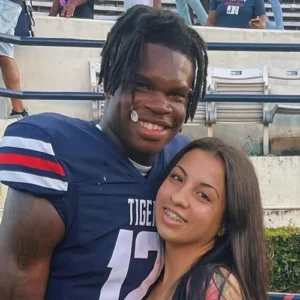Caitlin Clark once again solidified herself in elite company after a massive WNBA debut.
Clark joined the likes of Phoenix Mercury star Diana Taurasi, Candace Parker, Sue Bird and Tamika Catchings as the fifth rookie to make the All-WNBA first team since 2000 on Wednesday. She’s the first rookie since Parker in 2008 to earn the honor.
While Clark didn’t win MVP like Parker did in her rookie season, she finished fourth in MVP voting and handily won Rookie of the Year.
Clark averaged 19.2 points, a WNBA-high 8.4 assists, 5.7 rebounds and 1.33 steals. She recorded a WNBA record of 337 assists and led the league with 122 3-pointers made, which was the second-highest total in league history. She set the WNBA single-game record for assists (19) and recorded the first two triple-doubles by a rookie in league history.
For All-WNBA voting, Clark got 52 votes out of 67 votes from local and national media for the first team and 14 votes for the second team. All but one voter had her on their first- or second-team ballots.
Many griped about the decision to leave her off the Olympic team, which won its eighth straight gold medal this summer, but Clark’s game benefited from the Olympic break.
Clark had little time between playing in the national championship with Iowa and training camp with the Indiana Fever. Her college commitments also kept her from important U.S. national team training camps, which led to her not being selected.
Before the Olympic break, Clark averaged 17.1 points, 8.2 assists, and 5.8 rebounds. It was after the break that she displayed elite play that helped the Fever go 9-5 and secure a playoff berth.
Clark recorded 23.1 points, 8.9 assists and 5.4 rebounds, which made her a sure shot for several end-of-season awards, including All-WNBA first team.
Mercury star Kahleah Copper appeared primed to make the All-WNBA first team at the start of the season, but had to settle for second-team honors. She had 53 votes from the 67 voters.
Copper ranked third in the WNBA in scoring with a career-high 21.7 points per game. She also had the second-most games with at least 30 points (nine) and was the only player to record consecutive games of 30 or more points twice.
However, she was producing more before the Olympic break (23.2 points and 4.6 rebounds). Copper was named to the U.S. Olympic team, which didn’t afford her much of a break. As a result, her production dipped and she averaged 16.8 points over 12 games and had one game with at least 30 points.
Despite her finish, Copper remained one of the best players in the league and had the best numbers in her nine-year career. Copper and members of the All-WNBA second team will receive $5,150, while the members of the first team will receive $10,300.
The Las Vegas Aces’ A’ja Wilson, who was the unanimous MVP, and the Minnesota Lynx’s Napheesa Collier, the Defensive Player of the Year, were unanimous selections to the All-WNBA first team. The New York Liberty’s Breanna Stewart got 65 first-team votes and two second-team votes, and the Connecticut Sun’s Alyssa Thomas garnered 39 first-team votes and 20 second-team votes.
The All-WNBA second-team was Sabrina Ionescu, Nneka Ogwumike, Arike Ogunbowale and Jonquel Jones.
News
Billionaire Elon Musk confirmed that he has 12 children with 3 women, he must start redistributing inheritance when the 12th child is born
Billionaire Elon Musk has officially confirmed that he has had a third child with his female subordinate Shivon Zilis. Currently, Musk has a total of 12 children with 3 wоmen. In an interview with Page Six (USA), Elon Musk (52…
Every time he wins an award, Siya Kolisi gives his wife an expensive supercar to add to his car collection
Following his relocation to France, Springboks captain Siya Kolisi has added a stylish new set of wheels to his collection. Feast your eyes on his latest vehicle! Kolisi was pleasantly surprised with a brand-new Range Rover, a generous gift presented…
Justin Baldoni’s Man Enough Co-Host Liz Plank Leaves Podcast After Blake Lively Claims: ‘We All Deserve Better’ (Exclusive)
On Dec. 20 Lively accused Baldoni of sexual harassment on set and a retaliatory public smear campaign in a legal filing Justin Baldoni, Blake Lively and Liz Plank. Journalist and author Liz Plank co-hosts the podcast The Man Enough with actor-filmmaker…
Heisman Winner Travis Hunter Deactivates Instagram Account as Hatred Toward Fiancée Leanna Lenee Continues
The controversy initially began as Hunter received the Heisman trophy and many fans called out Lenee’s behavior in videos that circulated online Travis Hunter Leanna Lanee. Amid the continued vitriol going around online about his fiancée Leanna Lenee, 2024 Heisman…
Tallulah Willis Reveals She’s Engaged to Musician Justin Acee
The 30-year-old daughter of Demi Moore and Bruce Willis announced her engagement on Monday, Dec. 23 Tallulah Willis announces engagement to Justin Acee. Tallulah Willis is ready to walk down the aisle! “Everyday @justinacee,” she wrote next to the social media post…
Blake Lively’s A Simple Favor 2 Costar Michele Morrone Says He ‘Felt Her Pain’ Over Justin Baldoni’s Alleged Behavior
Morrone filmed ‘A Simple Favor 2’ with Lively shortly after she wrapped ‘It Ends With Us’ with Baldoni Michele Morrone and his costar Blake Lively. Michele Morrone is lending his support to his costar Blake Lively. On Monday, Dec. 23,…
End of content
No more pages to load











